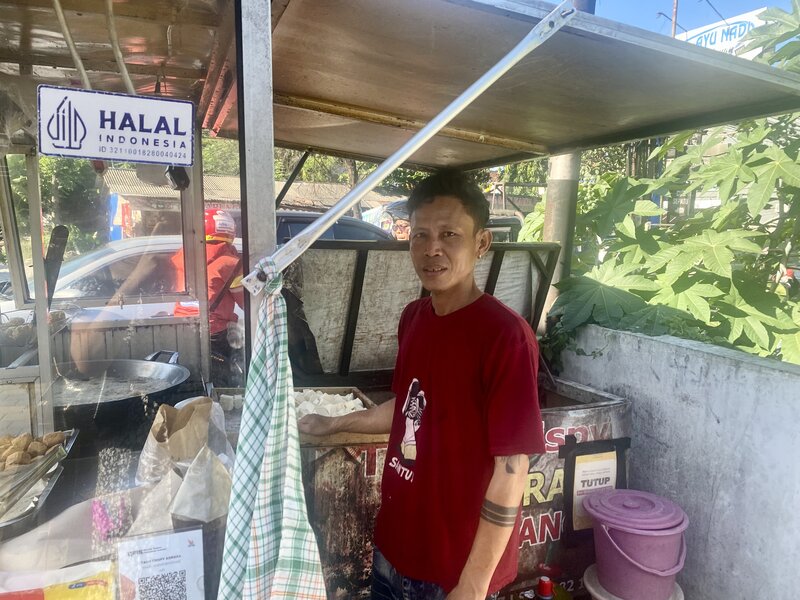Street snacks are one of the best ways to tap into the authentic flavours of any place.
While I’ve indulged in my fair share of Bali’s signature treats, I still find myself craving other Indonesian delicacies too. So, on one of my casual walks into an Alfamart, I stopped by a vendor I often passed in the parking lot and finally picked up some Tahu Sumedang—a Sundanese deep-fried tofu originating from Sumedang, West Java.
That’s where I met Hendi. Originally from Bandung, he’s been living in Bali for the past two years. His family remains back home—he has a child, now in third grade, who stays with Hendi’s parents. When I asked what brought him to Bali, he answered simply, “Well, of course—work. It’s easier to find here, and the money’s better.”
He went on to explain that running a street stall in Bandung came with extra burdens. “We already have to pay rent to Alfamart, but then there were the, I guess you could call them hoodlums—asking for money whenever they wanted. Sometimes, even every day.” In contrast, he said, things in Bali were more fairly structured. “Here, we additionally pay the pecalang (Balinese community police), but it’s fair, just part of the routine. And only monthly.”
It turns out these stalls are usually part of a chain, employed by the same owner. In Hendi’s case, he has had a long-standing relationship with his boss, having worked together back in Bandung. In fact, during that time, he’s been employed by the boss’s relatives, making him closely acquainted with their operation before they expanded to Bali.
Prior to being relocated to his current spot on Soputan Street, Hendi spent a year stationed at a stall along Bypass Ngurah Rai—an area he recalls as having a much more international crowd. “Here in Soputan, there’s barely any foreign customers,” he said while tending to his bubbling fryer. “But over there? Plenty. Foreigners came by all the time—some even became regulars.”
That’s not to say Soputan is quiet—far from it. The street’s known to be accompanied by constant traffic, the kind that never really lets up. Cars, motorbikes, delivery drivers—it’s a stream of local hustle. Every day, Hendi opens for business at 3 PM. According to him, the first few hours pass in a steady flow, but come 6 PM, things would shift. “That’s when it really starts,” he said. “That’s when I get the most customers.”
We chatted about all sorts of everyday things, and I found Hendi easy to talk to—warm, open, and happy to share. He spoke about how the cost of kos-kosan (in other terms, boarding houses) in Bali has steadily risen, though he considers himself lucky that his landlord has kept rent stable. Naturally, I also couldn’t help asking a Bandung native for his suggestions on the best spots for batagor or siomay in Bali, which is honestly quite hard to find.
As our conversation wound down and he wrapped up my order, I left with a warm bag of crispy tofu and the sense that behind every humble street stall is a life full of stories—if you only take the time to ask.




